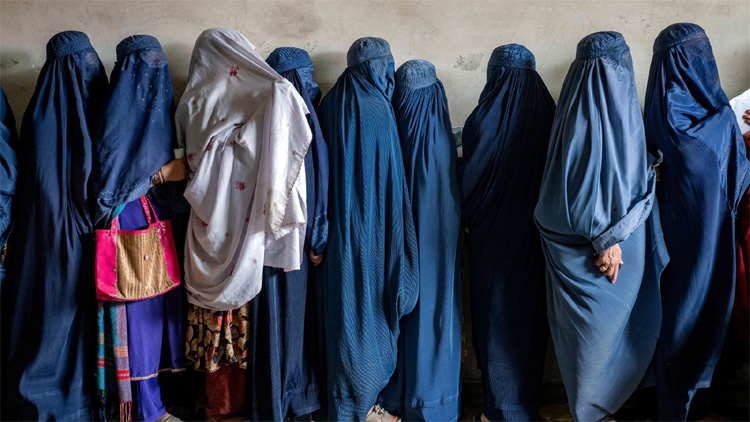Taliban’s latest ban: Women cannot listen to each other while praying
The Taliban regime has issued a new decree that further restricts the freedoms of Afghan women, prohibiting them from praying aloud in the presence of each other.
This order, delivered by Mohammad Khalid Hanafi, Taliban minister for the propagation of virtue and the prevention of vice, dictates that women should avoid reciting the Quran audibly when around other women, reports Afghan news channel Amu TV. Hanafi justified this restriction by stating that a woman’s voice is considered “awrah” – something that must be concealed – and should not be heard in public, even by other women.
He emphasised that if women are not permitted to call Takbir or Azan – the Islamic call to prayer – they certainly cannot engage in singing or enjoying music.
Hanafi further elaborated that a woman’s voice is considered “awrah,” meaning it should be concealed and not heard in public, even among other women. This new restriction raises concerns among experts who fear it could inhibit women’s ability to speak freely, thereby pushing them further out of public life.
Restrictions on Public Speech
This decree is the latest in a series of oppressive measures imposed on Afghan women since the Taliban regained control in 2021. Just this past August, the regime mandated that women wear full-body coverings, including face veils, when in public.
Female healthcare workers, among the few Afghan women permitted to work outside the home, are barred from talking in public, particularly with male relatives. A midwife in Herat revealed to Amu TV that they are not allowed to speak at checkpoints on their way to work or discuss medical issues with male relatives in clinics
“They don’t even allow us to speak at checkpoints on our way to work, and in clinics, we are instructed not to discuss medical issues with male relatives,” she shared.
While it remains unclear whether the latest decree has been formally enforced or the full extent of its implications, it aligns with the Taliban’s broader strategy to suppress women’s rights and freedoms. As these restrictions continue to multiply, the situation for women in Afghanistan grows increasingly precarious, raising alarm among human rights advocates globally.
Taliban’s opression of women
The Taliban’s track record on women’s rights is alarming. According to Amnesty International, the regime has:
– Prevented girls from attending secondary school
– Restricted women’s access to work and education
– Enforced strict guidelines on permissible clothing
– Arbitrarily detained women and girls for “moral corruption”
– Contributed to a surge in child, early, and forced marriages.

